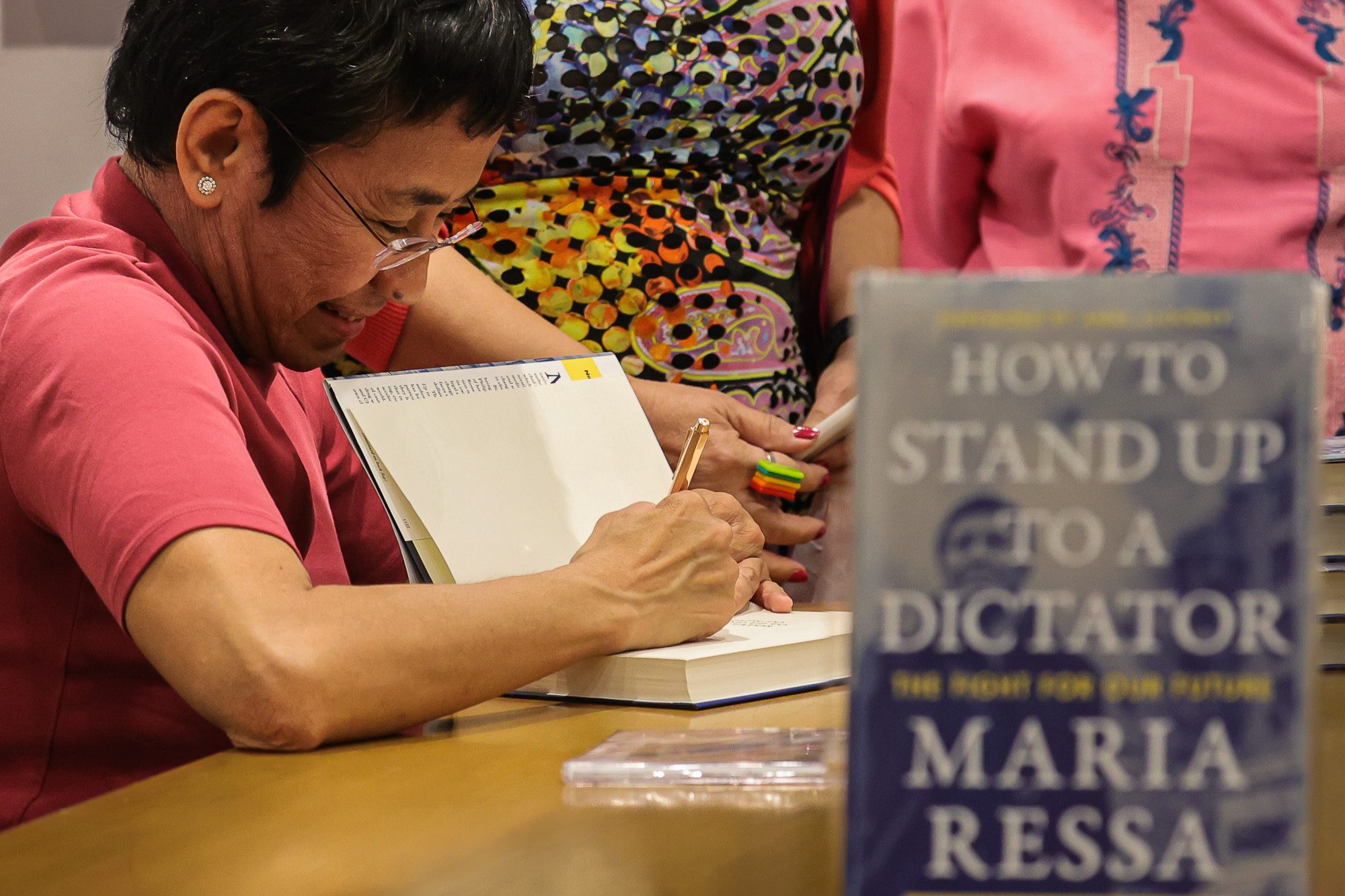SUMMARY
This is AI generated summarization, which may have errors. For context, always refer to the full article.

MANILA, Philippines – The book written by Nobel Peace Prize laureate and Rappler CEO Maria Ressa, “How to Stand Up to a Dictator,” is the Pre-read of Princeton University’s class of 2027.
In a video posted by Princeton on Thursday, April 6, Princeton University president Christopher Eisgruber addressed the class of 2027, as he introduced the Pre-read of their batch.
“Each year, I assign book to the incoming class that many of your faculty and others on the campus will read along with you. The author of this book is special. She is a renowned international journalist Maria Ressa from the great class of 1986,” Eisgruber said.

According to Princeton’s website, Pre-read is a Princeton tradition that “introduces first-year students to the intellectual life of the University by offering opportunities to engage with a book that is made available to students, faculty and staff.”
After arriving in the campus, the students come together to discuss the book with its author and Eisgruber during orientation.
The Princeton Pre-read started in 2013 and has continued with a new selection each year:
- 2013 — “The Honor Code: How Moral Revolutions Happen” by Kwame Anthony Appiah
- 2014 — “Meaning in Life and Why It Matters” by Susan Wolf
- 2015 — “Whistling Vivaldi: How Stereotypes Affect Us and What We Can Do” by Claude Steele
- 2016 — “Our Declaration: A Reading of the Declaration of Independence in Defense of Equality” by Danielle Allen
- 2017 — “What Is Populism?” by Jan-Werner Müller
- 2018 — “Speak Freely: Why Universities Must Defend Free Speech” by Keith Whittington
- 2019 — “Stand Out of Our Light: Freedom and Resistance in the Attention Economy” by James Williams
- 2020 — “This America” by Jill Lepore
- 2021 — “Moving Up Without Losing Your Way” by Jennifer Morton
- 2022 — “Every Day the River Changes” by Jordan Salama
Among the battles, and advocacies, Ressa takes up in her book include exposing networks of disinformation across the globe. By drawing links from former Philippine president Rodrigo Duterte’s drug war, to Brexit in the United Kingdom, Russian and Chinese cyber-warfare, Facebook, and Silicon Valley – and how these ties to individuals’ own online presence and votes, Ressa underscored the first way to combat the dangers of social media was to be aware of its pitfalls.
Part memoir, the novel also shows Ressa charting a career by holding power to account and the path she took to get there.
But why take an intimate tone and share her personal story, an approach often avoided by journalists? Ressa said it is because the battle for democracy had become personal.
How to Stand Up to a Dictator brings readers into Ressa’s personal thoughts and the tough questions she confronted as Rappler faced harassment and a slew of legal attacks from the Duterte administration.
As of April 2023, there are only three active court cases against Rappler and Ressa: the appeal of Ressa and former researcher Reynaldo Santos Jr. in their conviction for cyber libel pending at the Supreme Court, the lone tax case at the Pasig City Regional Trial Court, and the appeal on the closure of Rappler pending at the Court of Appeals.
Philippine media and global advocates have included these as part of attempts to stifle criticism and press freedom. – Rappler.com
Add a comment
How does this make you feel?
There are no comments yet. Add your comment to start the conversation.